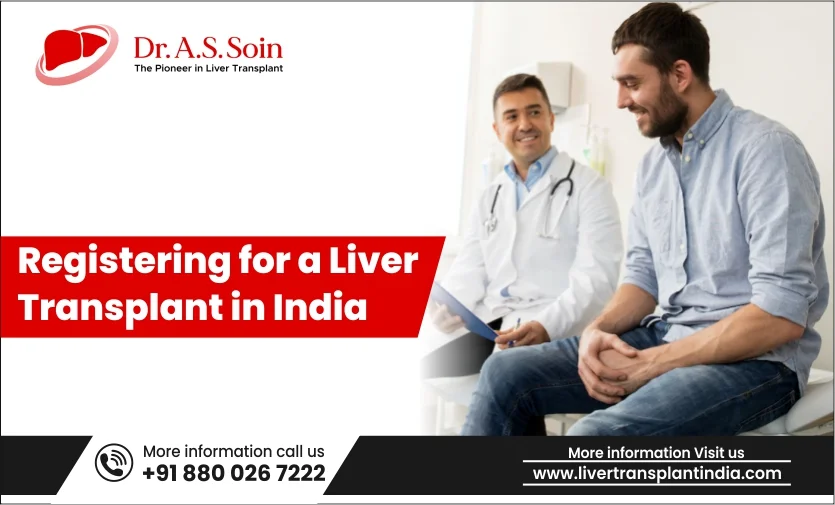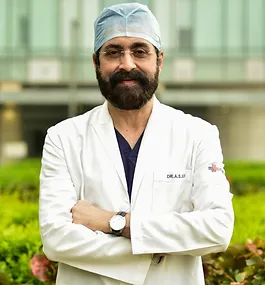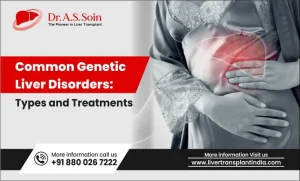Liver transplantation is a life-saving procedure for patients with severe liver disease, where a healthy liver replaces a failing one. The liver plays a crucial role in digestion and detoxification, so when it stops functioning properly, a transplant may be necessary. The demand for liver transplants in India is increasing due to the rising prevalence of liver diseases like cirrhosis, hepatitis, and others.
However, the registration process for a liver transplant in India can be complex and daunting for patients and their families. This blog aims to simplify the process by providing clear guidance on how to navigate the registration procedure, ensuring that those in need of a transplant can access the necessary information. By the end, readers will have a better understanding of the steps involved and what to expect along the way.
Table of Contents
ToggleWhen Does Someone Need a Liver Transplant?
Liver transplantation is usually considered when the liver can no longer perform its vital functions, leading to life-threatening complications. Cirrhosis, often caused by chronic alcohol use or repeated hepatitis infections, is a common reason for liver failure. Other causes include autoimmune liver diseases, genetic disorders like Wilson’s disease, and liver cancer.
However, not all liver diseases require a transplant. It is typically recommended only when no other treatments can halt disease progression and the liver’s damage is irreversible. The timing of the transplant is crucial, and while a liver transplant can offer a new lease on life, physicians carefully monitor symptoms such as confusion, fluid retention, and jaundice to determine when a transplant is necessary.
Liver Transplant Registration Process in India
The liver transplant registration process in India is structured into multiple steps, ensuring that eligible patients receive the best possible care. Given the complexity of organ transplantation, understanding the process can help patients and families navigate it more effectively. Below are the key stages of registration:
- Initial Consultation with a Liver Specialist: The process begins with a referral to a liver specialist, such as a liver transplant surgeon or hepatologist. The doctor reviews the patient’s medical history and current condition to determine whether a transplant is necessary. This may involve discussing the underlying liver disease, coexisting conditions, and previous treatments.
- Comprehensive Medical Evaluation: If a transplant is deemed necessary, the patient undergoes a series of medical tests to assess overall health. These may include imaging studies (MRI, ultrasound), blood tests, liver function tests, and possibly a liver biopsy. To ensure the patient is fit for surgery, evaluations of other organs, such as the kidneys, lungs, and heart, are also conducted.
- Documentation: Several documents are required to apply for a liver transplant, including identity proof (passport or Aadhaar), address proof, and medical records detailing diagnoses and treatments. A recommendation letter from the hepatologist is essential. In cases of living donor transplants, legal affidavits and documents verifying the donor-recipient relationship are also needed.
- Placement on the Transplant Waiting List: After completing the medical evaluation and paperwork, the patient is placed on the National Organ and Tissue Transplant Organization (NOTTO) waiting list. The patient’s ranking on this list is primarily determined by the MELD (Model for End-Stage Liver Disease) score, which indicates the severity of liver disease. Higher scores signify greater urgency, giving those patients priority for available organs.
- Ongoing Health Monitoring: While on the waiting list, patients are required to undergo regular medical check-ups to monitor their condition and ensure they remain in the best possible health for the transplant. This also ensures that any necessary medical care is provided while waiting.
This registration process plays a crucial role in determining patient eligibility and preparedness, giving them the best chance for a successful liver transplant and recovery.
The Role of Hospitals & National Organ Transplant Program (NOTP)
The National Organ Transplant Program (NOTP) plays a critical role in ensuring equitable access and regulation of liver transplants across India. By creating a centralized system for organ allocation based on factors such as medical urgency, waiting times, and compatibility, this program facilitates the organ donation and transplant process. Through the NOTP, patients are connected to a national registry, enabling efficient organ matching and ensuring transparency and fairness in the allocation process.
Hospitals participating in this initiative are key to the overall success of liver transplants. They not only assist in the registration process but also handle the complex medical procedures required for successful transplants. From conducting essential diagnostic tests to coordinating with transplant authorities at the state level, hospitals ensure patients are properly registered and placed on the waiting list.
Without the cooperation between hospitals and NOTP, managing liver transplants on a national scale would be significantly more challenging. Together, these institutions provide patients with equal opportunities to receive life-saving liver transplants.
Organ Allocation Process and the Waiting List
The liver transplant waiting list in India, managed by NOTTO, is designed to ensure organs are allocated fairly to those in need. A patient’s position on the waiting list is determined by several factors, including:
- MELD Score: This score measures the severity of liver disease and determines the urgency of the transplant. Higher scores indicate a greater need for immediate transplantation.
- Blood Type Compatibility: Donor and recipient blood types must match to reduce the risk of organ rejection.
- Organ Size: The donor liver must be appropriately sized for the recipient to ensure proper function.
- Geographic Proximity: To minimize ischemia time—the time an organ remains outside the body—preference is given to patients closest to the hospital where the organ was donated.
While the MELD score is a significant factor, other considerations, such as general health and post-transplant survival chances, also influence organ allocation. This systematic approach ensures fairness and transparency in the liver transplant process.
Financial Aid and Costs of Liver Transplants in India
Liver transplants in India are costly, with expenses covering various aspects such as surgery and post-operative care. The costs can generally be categorized into:
- Pre-transplant expenses: Consultations, diagnostic tests, and screenings.
- Surgical costs: The transplant surgery itself, including surgeon fees, hospital stay, and operating room expenses.
- Post-transplant costs: Immunosuppressive medications, follow-up care, and routine check-ups for recovery.
The overall cost of a liver transplant in India can range from ₹15 lakhs to ₹30 lakhs, depending on the hospital and case complexity.
Financial Assistance Options:
- Government Programs: Central and state programs, such as the Pradhan Mantri Jan Arogya Yojana (PM-JAY), offer financial support for eligible families, covering a range of medical treatments, including liver transplants.
- Health Insurance: Many health insurance policies cover liver transplants, but it’s essential to check the specifics of your plan and the requirements for pre-authorization.
- NGOs: Non-governmental organizations like Rotary International and the Jeevan Aastha Foundation offer financial aid to patients in need of transplant surgeries.
Patients are encouraged to explore these options to ease their financial burden and ensure they receive the necessary care.
Conclusion
For many individuals with severe liver diseases, liver transplantation is not only life-saving but also significantly improves their quality of life. As medical advancements and awareness grow, the potential of liver donation to enhance patient outcomes becomes increasingly recognized. However, there remains a pressing need for more organ donors.
By encouraging individuals to consider liver donation, we can help bridge the gap between the need for and availability of organs. Educating people on the process and benefits of liver donation can make a profound difference in saving lives.
Dr. A.S. Soin and his expert team at Liver Transplant India, Medanta, offer personalized care and comprehensive guidance for liver transplant patients. By consulting Dr. Soin and his team, you can ensure that you or your loved ones receive the best possible medical care and support throughout the transplant journey.








